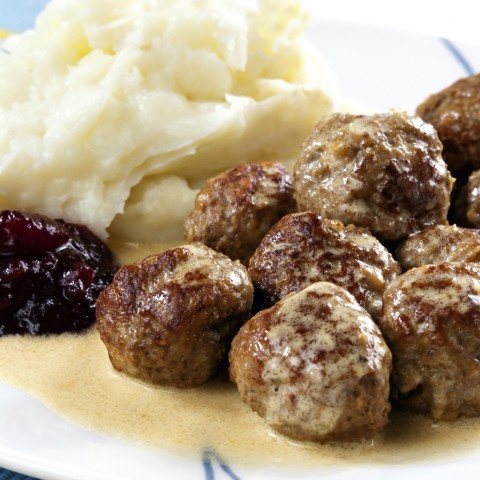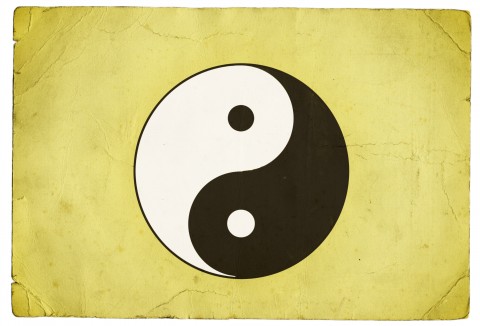
Have you ever been intrigued by how interconnected different languages are? Language is the key to human communication, and despite the vast differences between world countries and their cultures, their people’s languages have always influenced one another. This interconnectivity among languages creates common ground for people all around the world, showing that different languages and cultures are all connected somehow.
Because there are so many common English words in Chinese (and Chinese words in English), studying loanwords can pave the way for an easier language learning journey. Now without further ado, let’s jump right into the abundance of popular English loanwords in Chinese and explore the language phenomenon known as Chinglish.
Table of Contents
- Introduction to Chinglish
- Chinglish Examples
- List of Chinese Loanwords
- List of Food-Related Chinese Loanwords
- How to Say These Names in Chinese
- English Words Derived from Chinese
- List of English Words Derived from Chinese Food
- Conclusion
1. Introduction to Chinglish
Chinglish is a slang term that refers to spoken or written English as used by the Chinese. Due to the differences between the two languages, something that makes sense in Chinese may sound odd when directly translated in English. This is how Chinglish has become such a prevalent occurrence in China.
As the English language becomes more and more popular around the globe, Chinese people have started to integrate English into not only their education system but also their daily lives. For example, Chinese people love using Chinese words that have a similar pronunciation to English words, creating unofficial English-sounding slang terms (some of which we’ll introduce later).
2. Chinglish Examples
Here are some of the most popular Chinglish phrases and vocabulary. You’ll find these words extremely useful as you continue forward in your Chinese studies!
“Bye-bye”
In Chinese: 拜拜
Pinyin: bái bái
“Hello”
In Chinese: 哈喽
Pinyin: hā lou
“Hi”
In Chinese: 嗨
Pinyin: hāi
“Mommy”
In Chinese: 妈咪
Pinyin: mā mi
“Daddy”
In Chinese: 爹地
Pinyin: diē di
“Good morning”
In Chinese: 古德猫宁
Pinyin: gǔ dé māo níng
“You can you up, no can you BB”
In Chinese: 你行你上,不行别BB。
Pinyin: Nǐ xíng nǐ shàng, bù xíng bié bī bi.
Actual meaning in English: “Put up or shut up.”
Usage in context: When someone is complaining that they cannot achieve something, this phrase tells them to take positive action or stop complaining.
“Good good study, day day up”
In Chinese: 好好学习,天天向上。
Pinyin: Hǎo hǎo xué xí, tiān tiān xiàng shàng.
Actual meaning in English: “Study hard and make progress every day.”
Usage in context: This Chinglish slang term can be used to encourage your friends to study hard.
“No zuo no die”
In Chinese: 不作死就不会死。
Pinyin: Bù zuò sǐ jiù bú huì sǐ.
Actual meaning in English: “If you don’t ask for it, you won’t be punished for it.”
Usage in context: You could use this when your friend doesn’t know how to swim and still walks into the water on a beach.
“Add oil”
In Chinese: 加油
Pinyin: jiā yóu
Actual meaning in English: “Go for it.”
Usage in context: You could say this to try encouraging your friend to have faith for a competition.
“People mountain people sea”
In Chinese: 人山人海
Pinyin: rén shān rén hǎi
Actual meaning in English: It describes a situation where there are lots of people.
Usage in context: You could say this when there are a lot of people at a tourist attraction.
3. List of Chinese Loanwords
In addition to the Chinglish jargon we saw above, there are several English loanwords in the Chinese language. Loanwords differ from Chinglish in that a loanword is adapted into the Chinese language while preserving its original English meaning. Here are some useful examples for you, along with their usage in a sentence.
“Bully” – 霸凌 (bà líng)
In Chinese: 这个学校高年级的学生总是霸凌比自己年龄小的孩子。
Pinyin: Zhè gè xué xiào gāo nián jí de xué shēng zǒng shì bà líng bǐ zì jǐ nián líng xiǎo de hái zi.
In English: “The students who are in a higher grade always bully kids who are younger than them.”
“Cool” – 酷 (kù)
In Chinese: 他打篮球的样子很酷。
Pinyin: Tā dǎ lán qiú de yàng zi hěn kù.
In English: “The way he plays basketball looks so cool.”
“Calories” – 卡路里 (kǎ lù lǐ)
In Chinese: 为了减肥,我很少吃卡路里高的食物。
Pinyin: Wèi le jiǎn féi, wǒ hěn shǎo chī kǎ lù lǐ gāo de shí wù.
In English: “I hardly eat food with high calories since I am trying to lose weight.”
“Cartoon” – 卡通 (kǎ tōng)
In Chinese: 小的时候我很喜欢看卡通片。
Pinyin: Xiǎo de shí hou wǒ hěn xǐ huan kàn kǎ tōng piān.
In English: “I loved watching cartoons when I was little.”
“Sofa” – 沙发 (shā fā)
In Chinese: 这个沙发真舒服。
Pinyin: Zhè gè shā fā zhēn shū fu.
In English: “This sofa feels so comfortable.”
“Guitar” – 吉他 (jí ta)
In Chinese: 我曾经学了五年的吉他。
Pinyin: Wǒ céng jīng xué le wǔ nián de jí tā.
In English: “I learned to play the guitar for five years.”
“Ballet” – 芭蕾 (bā léi)
In Chinese: 芭蕾是一项文雅的爱好。
Pinyin: Bā lěi shì yī xiàng wén yǎ de ài hǎo.
In English: “Ballet is an elegant hobby.”
“Party” – 派对 (pài duì)
In Chinese: 我们全家人都很喜欢参加派对。
Pinyin: Wǒ men quán jiā rén dōu hěn xǐ huan cān jiā pài duì.
In English: “My whole family loves going to parties.”
“Mexico” – 墨西哥 (Mò xī gē)
In Chinese: 我曾经去墨西哥旅游过。
Pinyin: Wǒ céng jīng qù Mò xī gē lǚ yóu guo.
In English: “I went to Mexico for a trip.”
“Tank” – 坦克 (tǎn kè)
In Chinese: 坦克是一项伟大的发明。
Pinyin: Tǎn kè shì yī xiàng wěi dà de fā míng.
In English: “The invention of the tank is great.”
4. List of Food-Related Chinese Loanwords
If you happen to love food as much as I do, you gotta learn these!
Food is what makes the world go round, so it should come as no surprise that some of the most popular English words used in Chinese are those related to food. Take a look:
- “Chocolate” – 巧克力 (qiǎo kè lì)
- “Coffee” – 咖啡 (kā fēi)
- “Cheese” – 芝士 (zhī shì)
- “Pizza” – 比萨 (bǐ sà)
- “Curry” – 咖喱 (gā li)
- “Bacon” – 培根 (péi gēn)
- “Hamburger” – 汉堡包 (hàn bǎo bāo)
- “Vitamin” – 维他命 (wéi tā mìng)
- “Pudding” – 布丁 (bù dīng)
- “Salad” – 沙拉 (shā lā)
5. How to Say These Names in Chinese
There are a number of Chinese words ‘borrowed’ from world-famous brand, celebrity, and movie names. How do you pronounce them in Chinese?
Global Brand Names
- “McDonald’s” – 麦当劳 (mài dāng láo)
- “Nike” – 耐克 (nài kè)
- “Walmart” – 沃尔玛 (wò ěr mǎ)
- “IKEA” – 宜家 (yí jiā)
Have you ever tried the famous Swedish meatballs from IKEA?
- “Sephora” – 丝芙兰 (sī fú lán)
- “Coca Cola” – 可口可乐 (kě kǒu kě lè)
- “Disney” – 迪士尼 (dí shì ní)
- “Kentucky Fried Chicken / KFC” – 肯德基 (kěn dé jī)
- “Adidas” – 阿迪达斯 (ā dí dá sī)
- “Häagen-Dazs” – 哈根达斯 (hā gēn dá sī)
- “Starbucks” – 星巴克 (xīng bā kè)
- “Marvel” – 漫威 (màn wēi)
Celebrities/English Names
I’m sure you have a favorite celebrity. Learn how to write his/her name in Chinese!
- “Justin Bieber” – 贾斯汀·比伯 (jiǎ sī tīng·bǐ bó)
- “Taylor Swift” – 泰勒·斯威夫特 (tài lè·sī wēi fū tè)
- “Emma Watson” – 艾玛·沃特森 (ài mǎ · wò tè sēn)
- “Ed Sheeran” – 艾德·希兰 (ài dé · xī lán)
- “Bruno Mars” – 布鲁诺·马尔斯 (bù lǔ nuò ·mǎ ěr sī)
- “Michael Jackson” – 迈克尔·杰克逊 (mài kè ěr · jié kè xùn)
- “Leonardo DiCaprio” – 莱昂纳多·迪卡普里奥 (lái áng nà duō · dí kǎ pǔ lǐ ào)
- “Kobe Bryant” – 科比·布莱恩特 (kē bǐ ·bù lái ēn tè)
Popular Movie Names
How can one survive without the entertainment from movies?
- “Harry Potter” – 哈利波特 (hā lì bō tè)
- “Titanic” – 泰坦尼克号 (tài tǎn ní kè hào)
- “Kung Fu Panda” – 功夫熊猫 (gōng fu xióng māo)
- “Mulan” – 木兰 (mù lán)
- “Sherlock” – 神探夏洛克 (shén tàn xià luò kè)
- “Avatar” – 阿凡达 (ā fán dá)
- “Schindler’s List” – 辛德勒的名单 (xīn dé lè de míng dān)
- “Edward Scissorhands” – 剪刀手爱德华 (jiǎn dāo shǒu ài dé huá)
- “The Curious Case of Benjamin Button” – 本杰明·巴顿奇事 (běn jié míng · bā dùn qí shì)
- “Mickey Mouse” – 米奇老鼠 (mǐ qí lǎo shǔ)
6. English Words Derived from Chinese
This language exchange goes both directions, and there are plenty of English words from Chinese. How many of these do you hear, see, or use each day?
“Kung Fu”
In Chinese: 功夫
Pinyin: gōng fu
What it is: Traditional Chinese martial art.
Usage in a sentence:
In Chinese: 他可真是功夫了得啊。
Pinyin: Tā kě zhēn shì gōng fu liǎo dé a.
In English: “His Kung Fu is excellent.”
“Yin & Yang”
It’s fascinating to see how Yin and Yang complement each other. Do you have a partner who is like Yin and Yang with you?
In Chinese: 阴 &(和) 阳
Pinyin: yīn & (hé) yáng
What it is: An ancient Chinese philosophy that perceives dualism as opposites that are complementary to each other.
Usage in a sentence:
In Chinese: 我们两个的性格就像是阴和阳,可以互补。
Pinyin: Wǒ men liǎng gè de xìng gé jiù xiàng shì yīn hé yáng, kě yǐ hù bǔ.
In English: “Our personalities are just like Yin & Yang, which can complete each other.”
“Chop chop”
In Chinese: 快点快点
Pinyin: kuài diǎn kuài diǎn
What it is: Deriving from Cantonese, it means “hurry” and is of the same origin as the word “chopstick.”
Usage in a sentence:
In Chinese: 快点快点,我们要迟到了。
Pinyin: kuài diǎn kuài diǎn, wǒ men yào chí dào le.
In English: “Chop chop! We are going to be late.”
“Ping pong”
In Chinese: 乒乓
Pinyin: pīng pāng
What it is: A Chinese sport that is like table tennis, where two players hit a lightweight ball on a table back and forth.
Usage in a sentence:
In Chinese: 乒乓球是我最喜欢的运动之一。
Pinyin: Pīng pāng qiú shì wǒ zuì xǐ huan de yùn dòng zhī yī.
In English: “Ping pong is one of my favorite sports.”
“Long time, no see.”
In Chinese: 好久不见
Pinyin: hǎo jiǔ bú jiàn
Actual meaning in English: “It’s been a long time.”
Usage in a sentence:
In Chinese: 好久不见,你又长高了。
Pinyin: Hǎo jiǔ bú jiàn, nǐ yòu zhǎng gāo le.
In English: “Long time no see, you are getting taller again.”
“Lose face”
In Chinese: 丢脸
Pinyin: diū liǎn
What it is: To suffer humiliation because of a certain behavior, especially in public.
Usage in a sentence:
In Chinese: 那个小偷的父母一定会为自己的孩子感到丢脸的。
Pinyin: Nà gè xiǎo tōu de fù mǔ yī dìng huì wèi zì jǐ de hái zi gǎn dào diū liǎn de.
In English: “The parents of that thief must have felt like they had lost face because of their children.”
“Brainwash”
In Chinese: 洗脑
Pinyin: xǐ nǎo
What it is: To make someone adopt a mentality by imbuing it forcibly.
Usage in a sentence:
In Chinese: 这首歌天天都在商场里播,听得我都被洗脑了。
Pinyin: Zhè shǒu gē tiān tiān dōu zài shāng chǎng lǐ bō, tīng de wǒ dōu bèi xǐ nǎo le.
In English: “This song has been played in the mall over and over again to the point I am almost brainwashed with it.”
7. List of English Words Derived from Chinese Food
As can be expected, some of the most popular Chinese words in English are related to food. Here are just a few examples for you:
- “Ketchup” – 番茄酱 (fān qié jiàng)
- “Wonton” – 云吞 (yún tūn)
- “Tofu” – 豆腐 (dòu fu)
- “Bok Choy” – 小白菜 (xiǎo bái cài)
- “Chow Mein” – 炒面 (chǎo miàn)
- “Dim Sum” – 点心 (diǎn xīn)
- “Hoisin” – 海鲜 (hǎi xiān)
- “Soy” – 酱油 (jiàng yóu)
- “Tea” – 茶 (chá)
8. Conclusion
Isn’t it marvelous how we can draw such similarities between different languages and see that people around the world share so much in common? Now that you’ve learned so many English words in the Chinese language, try to embrace the similarities between the two languages. These similarities are a good place for beginners to start for easy memorization.
If you enjoyed this article, we encourage you to learn more Chinese with other fun materials like this on ChineseClass101.com! We will guide you throughout your Chinese learning journey, acting as a beacon and providing you with best-in-class teaching services.
Happy learning!

There are two directions you mentioned:
- transliteration or romanisation using Wade-Giles (
Taofor道) or Pinyin (Daofor道) to write/spell/pronounce chinese characters/words (see Taoism VS Daoism). This facilitates the usage of Chinese words in English language (e.g. Beijing). - loan words or using English words in Chinese language
You are asking for the latter.
How to choose characters?
For the selection of matching chinese characters there is always the trade-off between phonetic (sound) as well as semantic (meaning) similarity.
Some are just resembling phonetic:
For example 打的 (dadi) means (to go by) taxi. It’s colloquial although there are «original» chinese idioms for that, e.g. 出租车 (chuzuche) meaning taxi (or rental-car in Taiwanese).
Difficult to reflect both, sound and meaning:
Especially foreign businesses are smartly applying creativity to give there brands recognizable chinese names (easy to associate and remember).
That effort leads for example to IKEA translated to 宜家 (yijia) literally proper-home, or Cola to 可乐 (kele) literally amusing/entertaining.
Localised Foreign Brand Names
Since you are asking especially for the «translation» of brand names, there are further aspects for selecting the right characters/words:
- cultural fit
- socioeconomic and psychological associations
- historical and traditional reflections
Above factors are essential for designing brands, not only for translating their names.
The difficulty in selecting a suitable chinese brand name may even include visual (stylish) aspects: aesthetic and beauty of the characters, since they should appeal visually to the target audience:
The translation from English brand to Chinese brand involves issues of “translating a name from a letters -and- phonemes-based phonographic language (i.e. English) to a visual-character-based logographic language (i.e. Chinese)” (Schmitt & Zhang, 2012, p.656).
Refer to examples where the name was selected to incorporate such aspects, although neither matching phonetically nor semantically:
- Poison (a luxury fragrance) was retranslated to
百爱神(Bai Ai Shen), which means everyone will love it. So that people would like to purchase it, rather than they would if it has a negative connotation like its original name and meaning.
Further Reading
Branding in China is covered by many Studies and Research Papers, published at Universities by sinologists and economists alike:
- Shi, H. (2017). Translation Strategies from Target Culture Perspective: An Analysis of English and Chinese Brands Names. International Journal of English Language & Translation Studies. 5 (1), 15-22.
- Berende, B. (2012) : What’s in a Name? A study on the success factors of brand naming in China. Master Thesis, Jönköping International Business School
Chinese Reading Center
Foreign words and concepts are adopted into the Chinese language in either of
two ways. One way is to create a new compound word that actually
translate the concept behind the word. For example, a computer
is known as a diannao (電腦) or electronic brain, while a telephone
is dianhua (電話), or electric voice. Another way is for the foreign
word to be transliterated into Chinese. Unfortunately, this approach
has a number of drawbacks. One is that since the Chinese characters
were not designed to represent sound, the result is usually just a rough approximation of the
original sound. Moreover, since the characters may be pronounced
very differently under various dialects, what is a close approximation
under one dialect may not be under another. Hence, it is not
unusual for the same foreign word to have multiple Chinese transliterations
based on the dialect. Another
disadvantage of transliterated words is that since every Chinese
character has a meaning, a transliterated word is nonsensical
unless one immediately recognizes that one should read just the
sound and ignore the meaning of the underlying characters. This
can be very confusing for beginning Chinese readers.
Increasing globalization means that foreign loan words are likely to increase
the Chinese language. In Hong Kong, where residents
freely insert English words into their
Cantonese dialect, they tend to have more transliterated English
words than other Chinese speakers.
| English Source | 繁體 Trad ↔ 简体 Simp | Alternate Chinese Equivalents |
|---|---|---|
| Baby | 啤啤* | 婴儿 |
| Bar | 酒吧 | |
| Bowling | 保龄球 | 滚木球 |
| Brandy | 白兰地酒 | |
| Buffet | 蒲飞* | 自助餐 |
| Bus | 巴士 | 公共汔车 |
| Bye Bye | 拜拜 | |
| Calorie | 卡路里 | 量单位 |
| Cartoon | 卡通 | 漫画, 动画 |
| Cheese | 芝士 | 奶酪 |
| Cherry | 车厘子* | 樱桃 |
| Cocoa | 可可 | 谷咕* |
| Coffee | 咖啡 | |
| Chocolate | 克力 | 朱古力 |
| Curry | 咖喱 | |
| Cyanide | 山埃* | 氰化物 |
| Disco | 迪斯可 | * |
| Fashion | 样 | 臣* |
| Film | 菲林* | 胶卷 |
| Gallon | 加仑 | |
| Golf | 尔夫球 | |
| Guitar | 他 | 结他* |
| Hamburger | 汉堡 | |
| Jelly | 者喱 | 果子冻 |
| Mile | 米 | 英里 |
| Morphine | 吗啡 | |
| Motor | 摩托 | 电动机 |
| Ounce | 盎斯 | 安士 |
| Pudding | 布丁 | 布甸 |
| Salad | 拉 | |
| Sandwich | 明治 | |
| Sardines | 丁鱼 | 甸鱼* |
| Salmon | 鱼* | 鲑鱼 |
| Sauna | 桑拿* | 气浴 |
| Sofa | 发 | 梳化 |
| Strawberry | 多啤梨* | 草莓 |
| Sundae | 新地 | 水果奶油, 冰淇淋 |
| Taxi | 的士 | 出租车, 计程车 |
| Tips | 贴士* | 小费, 提示 |
| Toast | 多士 | 吐司, 烤面包 |
| Toffee | 太妃糖 | 拖肥* |
| Vitamin | 维他命 | 维生素 |
| Vodka | 伏特加酒 | |
| Whisky | 威士忌酒 |
*Cantonese
See also
- Lost in Translation
- Chinese Loan Words in the English Language
In the process of the formation of a language, it is rarely all formed by an individual language, and there are often cross-lingual word exchanges, that is, one language borrowed words from another language. The purpose of borrowing foreign words is to enrich the language, especially the lexical system of the language. When two or more cultures come into contact with each other, their native languages inevitably influence each other. Language contact is a very common social phenomenon, and one of the inevitable results of language contact is the emergence of loanwords. A loanword is a word adopted from a foreign language with little or no modification. It is a common phenomenon that one language borrows and absorbs the vocabulary of another language. There are loanwords in all languages.

Chinese loanwords have a long history, the earliest can be traced back to the Qin and Han dynasties. Chinese has borrowed words from a wide range of sources, including Japanese, Russian, French, English, Greek, German, Korean, and Indian Sanskrit. With English becoming the most widely spoken language in the world and the emergence of electronic and information technology loanwords, English has now become the main source of loanwords in Chinese. Today let’s take a look at some common Chinese loanwords from English.
Different types of loanwords
According to word formation methods, Chinese loanwords can be divided into several categories, the most often seen types are words directly transliterated from the English; words transliterated from English and modified with Chinese meanings; words modified entirely modified with Chinese meanings and letter loanwords.
1. Words directly transliterated from English pronunciations, which the characters only imitate the foreign word in sound but make no sense.
Because the phonetic system of Chinese is different from that of other languages, it is impossible to convert into Chinese with exact the same pronunciations, it only can only take its approximation.





Download our Chinese Learning Guide
Our best advice to boost your Chinese Learning and make it more efficient distilled in the latest edition of our e-book. 40+ pages of tips and tricks. Free for blog readers.





2. Words transliterated from English and add on the category types or adjectives






3. Words transliterated from English and modified with Chinese meanings
Chinese as an ideographic character is easy to lead people’s imaginations. Therefore, transliteration often selects homophonic words or phrases that associate with artistic conceptions. It both sounds like and conveys the meaning of the original word.









4. Words converted into Chinese meanings by individual characters







5. Pure alphabetic words: word consisting only of letters


6. Alphabetic words formed by the combination of Chinese and letters




After reading through some loanwords, people may find it more confusing since the words sound quite awkward in Chinese. However, for most of the English native speakers or speak fluent English, it would be easy to learn Chinese vocabularies when coming across words that sound like or similar to English. The words that we listed above only consisted small proportion of the Chinese loanwords, we are sure that as your Chinese continues to improve, you will find more interesting loanwords along the way.
This volume accounts for the motives for contemporary lexical borrowing from English, using a comparative approach and a broad cross-cultural perspective. It investigates the processes involved in the penetration of English vocabulary into new environments and the extent of their integration into twelve languages representing several language families, including Icelandic, Dutch, French, Russian, Hungarian, Hebrew, Arabic, Amharic, Persian, Japanese, Taiwan Chinese, and several languages spoken in southern India. Some of these languages are studied here in the context of borrowing for the first time ever. All in all, this volume suggests that the English lexical ‘invasion’, as it is often referred to, is a natural and inevitable process. It is driven by psycholinguistic, sociolinguistic, and socio-historical factors, of which the primary determinants of variability are associated with ethnic and linguistic diversity. REVIEWS «[This] book is a welcome addition to the literature on the global impact of English and to the research on lexical borrowing. … [T]he overall value of this excellent book as a solid contribution to the systematization of the ongoing global process of lexical borrowing from English in the contemporary world and as a basis for enquiries concerning other languages to test and develop the model further.» Päivi Pahta, World Englishes 30 (2011), 160. «This book compares the use and impact of English lexical items in a dozen other languages around the world. The goal is to determine which items are taken in and why, noting as appropriate secondary effects such as the introduction of new phonemes or syntactic patterns. The common term for such a phenomenon is borrowing… This volume is a good introduction to the diversity of linguistic situations concerning this phenomenon.» Douglas A. Kibbee, The Modern Language Journal 95 (2011): 149. “… [T]his volume provides a substantial and important contribution to the research of language borrowing side by side with many adjacent fields, such as the global status of the English language, language policy and planning and historical-linguistic research. A reader unfamiliar with linguistic-theoretical conceptualization may face difficulties with several parts of the book, but undoubtedly would highly benefit from the sociolinguistic aspects that are presented usually in an accessible and thought-provoking manner.” Dafna Yitzhaki, Israel Studies in Language and Society 2 (2009), 135. “As a whole, the general theoretical outline of this book is novel, particularly the discussion on mechanism of adoption which have not been dealt earlier, and here is its great uniqueness. … This edited volume offers its readers a great deal of material and insightful distinctions that one must rely on in order to develop a balanced opinion on the eco-linguistic state of affaires of world languages, our language included. Every linguist and those who deal with languages contact in particular, but also scholars in other disciplines interested in the cultural phenomenon of the English impact on global culture and languages, would benefit from perusing this great wealth that only little of it was reviewed here.” Y. Newman, Helkat Lashon: A Journal for Theoretical and Applied Linguistics 41 (2009-10), 195.







